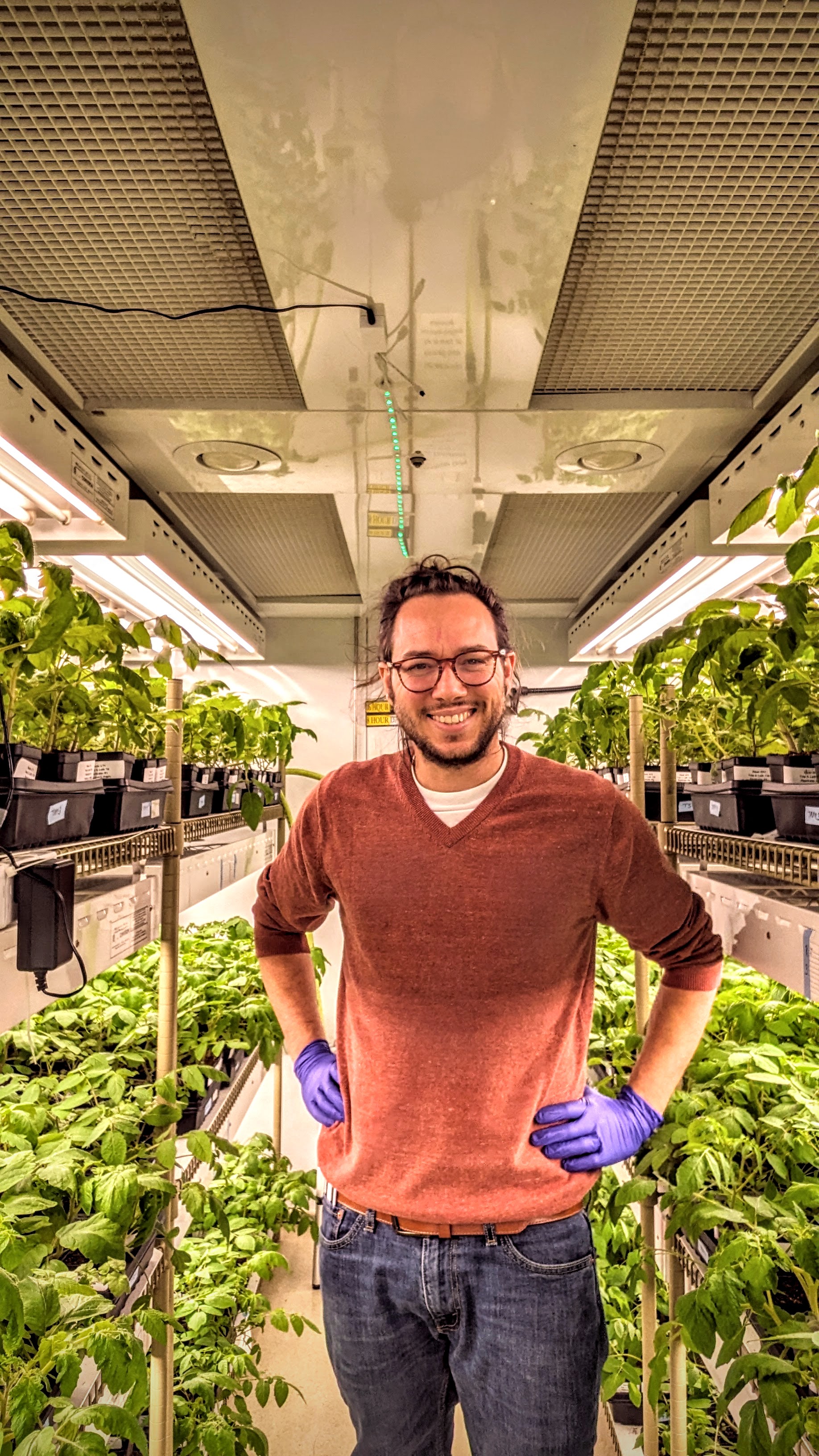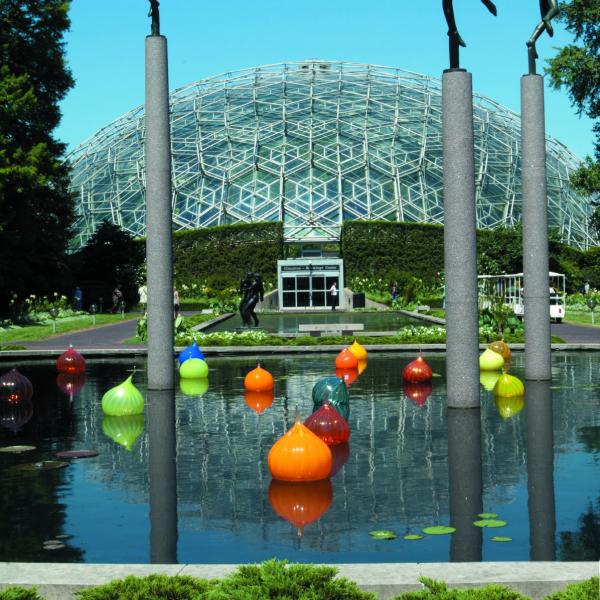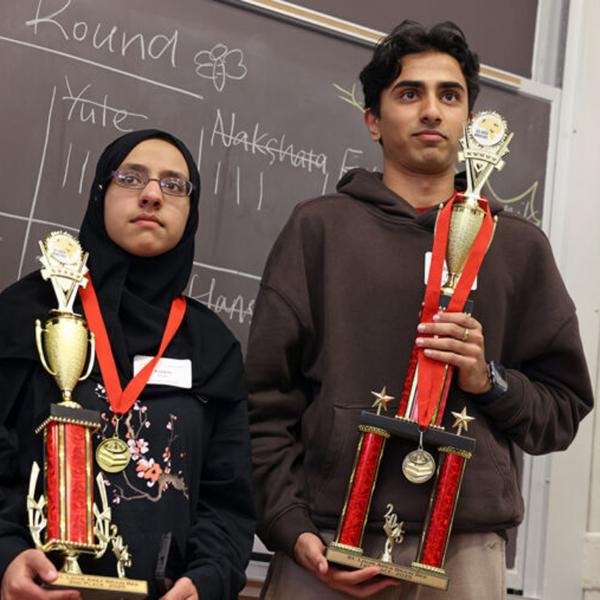Ben Mansfeld joined the Biology Department at WashU in fall 2023 as an Assistant Professor.
He was born in Tel Aviv, Israel, grew up in Vienna, Austria, and went back to Israel to complete his undergrad degree at Hebrew University of Jerusalem’s Faculty of Agriculture campus, a satellite campus focused on plant science, along with nutrition and biotechnology.
“I grew up in the city, but my dad having grown up in an agricultural village in Israel, knew a lot about farming and plants. We had a citrus orchard and a small greenhouse where we grew oranges and papaya in the mid-80s. My dad was one of the earliest papaya growers in Israel. We didn’t have a magnifying glass, but when I was 5 years old, he showed me some tiny red mites through his reading glasses. This little beneficial insect was walking around eating all the bad insects. It is one of my earliest memories of being fascinated with science.
“When applying to colleges, I wanted to be a graphics or industrial designer. I wanted to do green industrial design for the betterment of the planet, but I didn’t get into any program. I didn’t know what to do for my undergrad. While sitting in the backyard, complaining to friends about my dilemma, somebody asked me about the plants in our backyard. I went into detailed explanation about papaya males and females, fruit, pollen, crossing and so forth. She said ‘Ben, why don’t you go study agricultural science?’
“At first, the thought of having to take courses like Chemistry and Physics again scared me. I had completely forgotten how much I enjoyed biology, chemistry, and computer programming in high school. During my undergrad, I fell in love with plants again and I knew that I wanted to get a PhD and continue exploring plant science,” Mansfeld explained.
He completed his PhD on age-related disease resistance in cucumbers in Rebecca Grumet’s genetics lab at Michigan State University. Michigan is one of the largest producers of this crop due to ideal climate and soil conditions. The cucumbers are combine-harvested, not handpicked. Because the plants are growing on the ground, the fruit is in contact with the soil. Young fruits are highly susceptible to infection from the pathogen Phytophthora capsici, but as they mature and grow they become more resistant. His project focused on understanding the mechanisms behind that resistance.
Mansfeld moved to St. Louis to complete his postdoc at Donald Danforth Plant Science Center in Rebecca Bart’s lab, where he focused on several different projects, starting with research on cassava genomics. Cassava is an important crop for subsistence farmers in Sub-Saharan Africa, South America and Southeast Asia. In 2019, there was one cassava genome that existed, but it was not the best representative genotype for what people were actually growing, especially in Africa. Cassava is highly heterozygous. Variations between maternal and paternal copies of the genome created confusing challenges for researchers trying to assemble highly heterozygous genomes such as this.
The first goal was building a representative genome for African cassava, followed by using that genome to find genes involved in resistance to cassava mosaic disease, a virus that is endemic to Africa. When cassava was first brought from South America to Africa, it held promise for feeding many, but the crop was susceptible to this virus. Not only was the virus damaging to people’s crops and yields, but it began spreading around the world. Currently it’s spread to Southeast Asia, but still not to South America yet. One goal of this research is to prevent further spread by cloning the gene that contributes to disease resistance and using it to create crops that are more successful.
Mansfeld also worked on an NSF fellowship project during that time looking at the impact of circadian rhythm on disease resistance, specifically, how crop domestication impacts circadian mediated defenses in plants. It’s been known for 20 years that circadian rhythm controls many different things in plants, in particular, defense regulation. More recently, researchers have identified examples of some internal clocks of plants impacted by domestication. A useful and interesting example is the tomato, which has evolved over millions of years, growing naturally in equatorial regions of Ecuador and Peru, before being domesticated by humans. Through this domestication process tomatoes have been inadvertently selected to have slower internal clocks (they “think” the day is 28 hours long). The hypothesis is that this human caused delay in the internal clock creates problems for tomatoes in accurately timing their defenses to the many fungal and bacterial pathogens that threaten tomato production.
During his NSF fellowship project on tomatoes, he also collaborated with Chris Gottschalk at the USDA Appalachian Fruit Research Station on building genomes for all of the native crabapple species in North America. That project seeks to learn about disease resistance in wild heterozygous apples, and the genes that contribute to those disease resistances, specifically fire blight, which is spreading worldwide. The goal is to create apple varieties that are naturally resistant to disease in order to decrease the use of pesticides and herbicides in farming.
With continuing research at WashU in his own lab, Mansfeld hopes to answer questions such as: How has domestication impacted this fine-tuned mechanism of defending at the right time of the day? If we messed that up as humans when we investigated these crops, can we correct that and improve basic disease resistance in tomato, for example, as a model for this?
Adjustments to the growth chambers at Jeanette Goldfarb Plant Growth Facility at WashU will allow Mansfeld to run carefully controlled circadian experiments. Cues such as lighting, humidity, temperature, and the timing of all of those factors are crucial to circadian studies.
Mansfeld is excited to begin research in his lab and teaching at WashU. In his free time, he jogs and enjoys gardening and cooking with his family. Recently he’s rediscovered the joy of escaping into sci-fi and fantasy books to clear his mind at the end of the day. Learn more about the Mansfeld Lab here.





